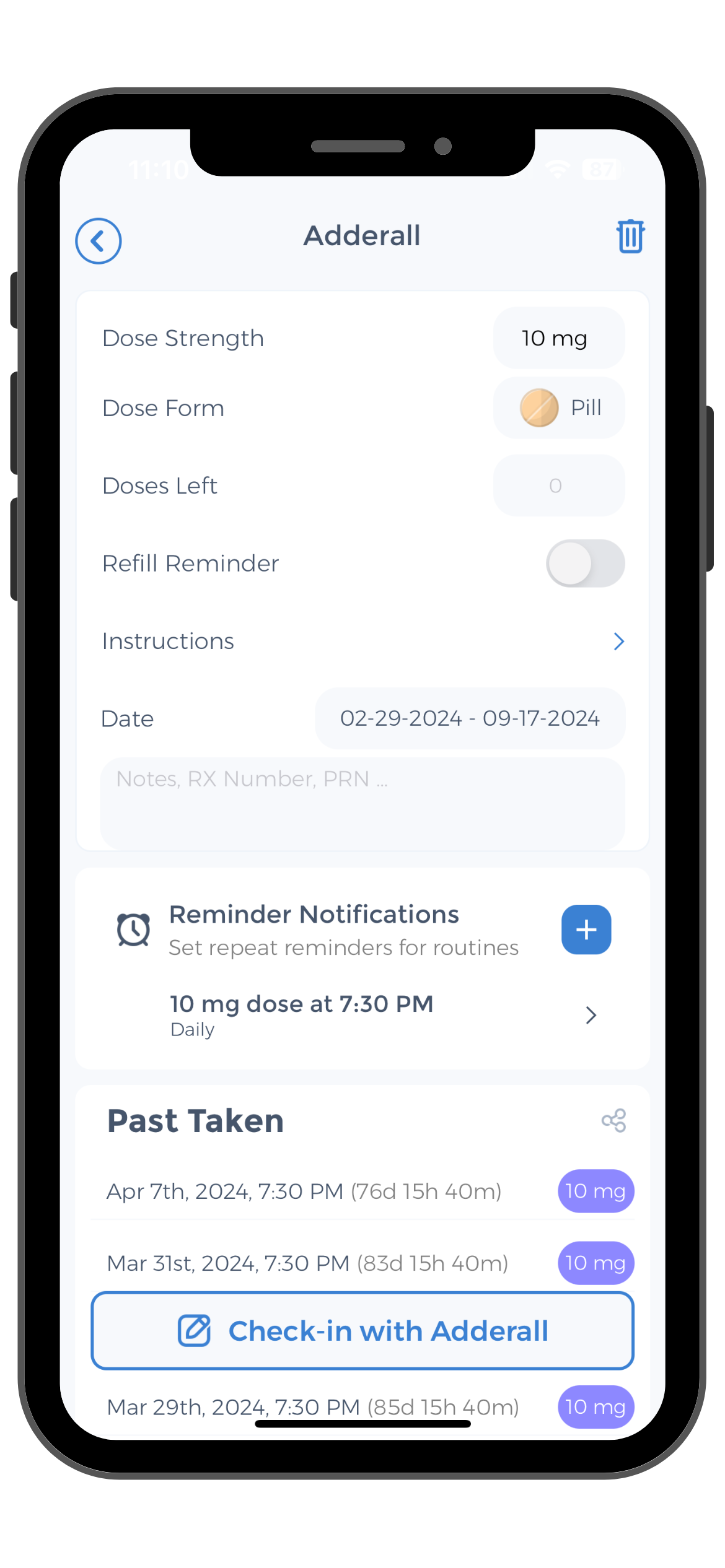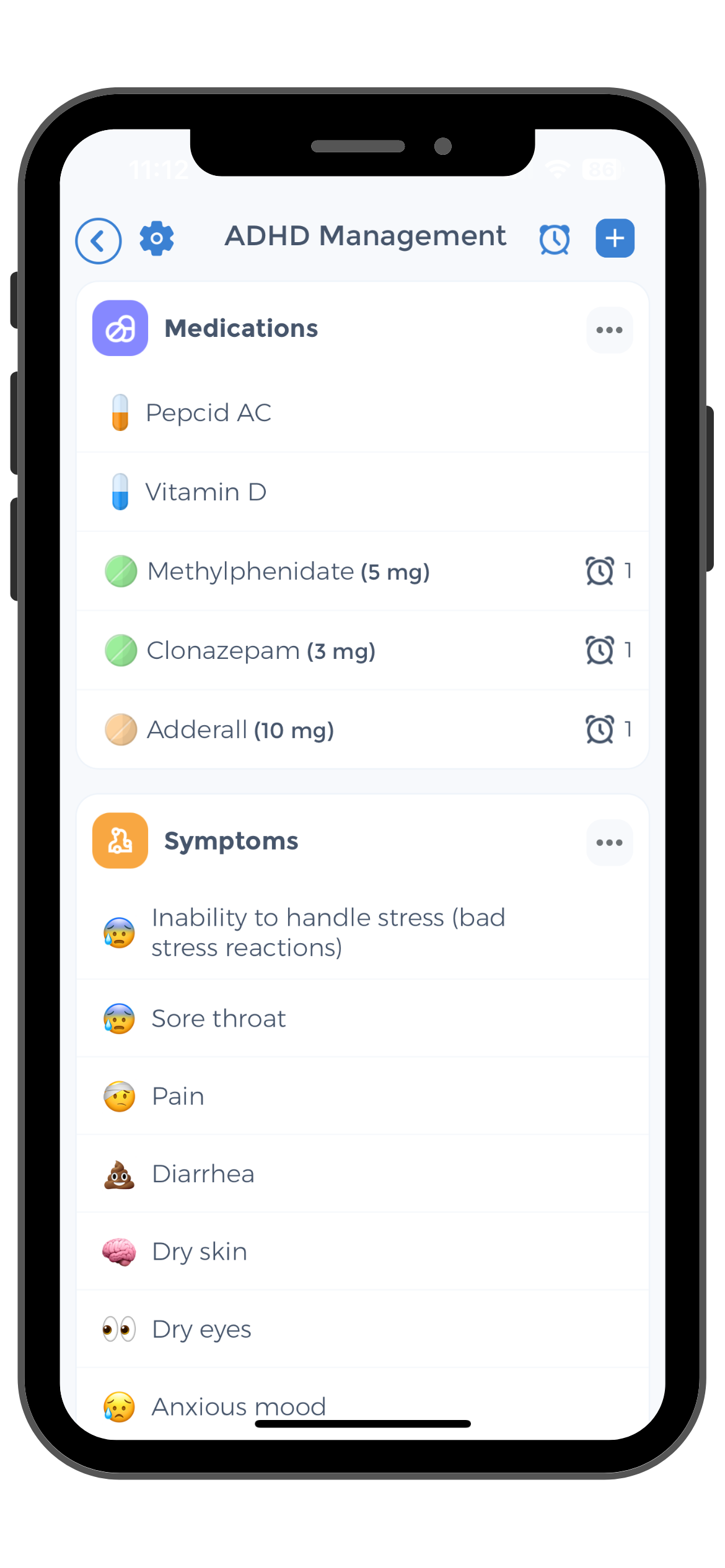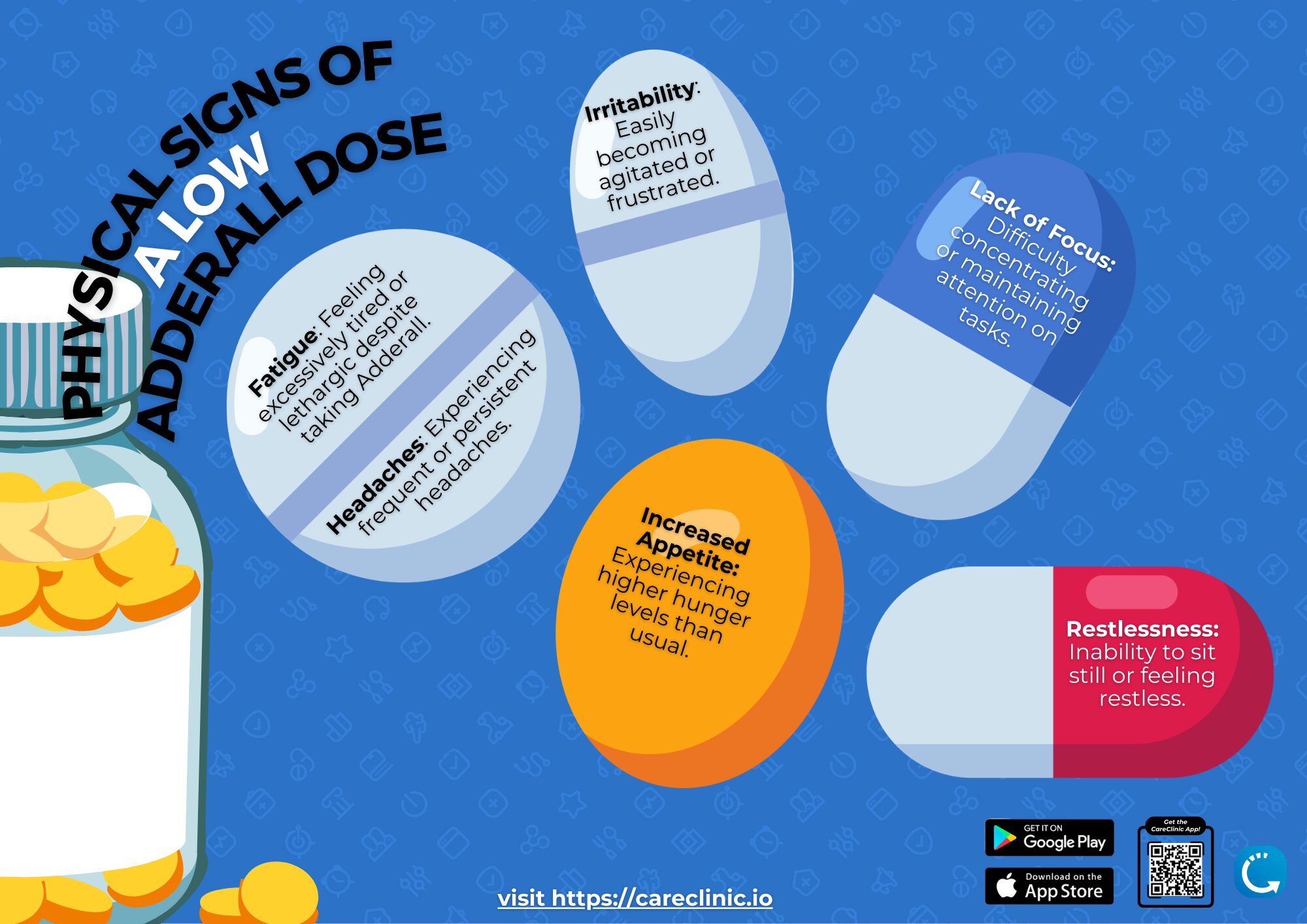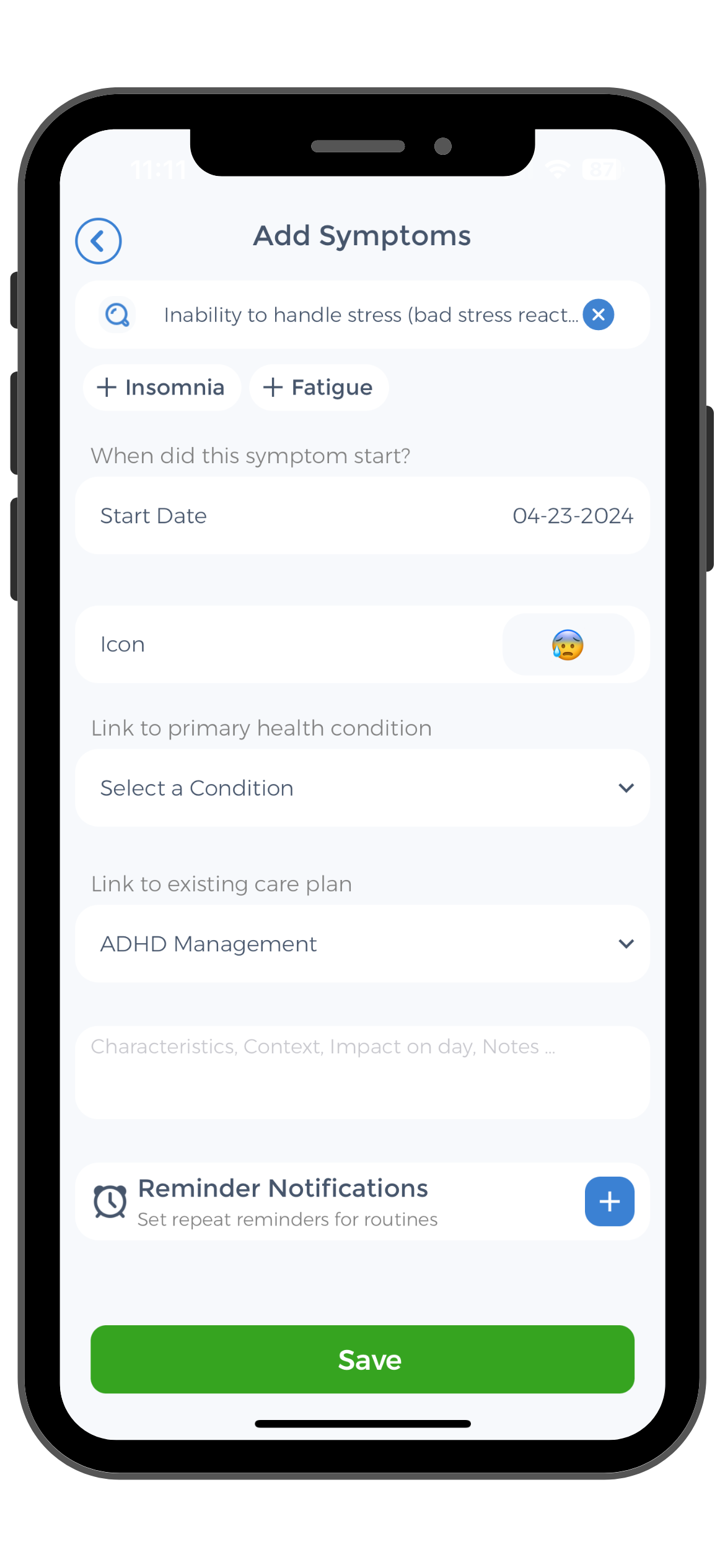
Adderall is a common prescription drug for the treatment of attention deficit hyperactivity disorder (ADHD) and other medical conditions. It works by increasing the levels of certain chemicals in the brain that help with focus, attention, and impulse control. However, it is important to ensure that the dose of Adderall is appropriate for each individual’s needs. In this article, we will explore the signs Adderall dose is too low. Including both physical and psychological indicators.
Understanding Adderall and Its Uses for ADHD Medication
 Before delving into the signs of a low Adderall dose, it is important to have a basic understanding of how this medication works and its various uses. Adderall belongs to a class of drugs known as stimulants. Which are prescribed to help manage symptoms to treat ADHD. It helps to improve focus, reduce impulsivity, and increase attention span. Allowing individuals with ADHD to better navigate their daily lives.
Before delving into the signs of a low Adderall dose, it is important to have a basic understanding of how this medication works and its various uses. Adderall belongs to a class of drugs known as stimulants. Which are prescribed to help manage symptoms to treat ADHD. It helps to improve focus, reduce impulsivity, and increase attention span. Allowing individuals with ADHD to better navigate their daily lives.
It is worth noting that Adderall is a combination medication containing amphetamine and dextroamphetamine. These stimulant medications work by affecting certain chemicals in the brain and nerves that contribute to hyperactivity and impulse control.
By increasing the levels of neurotransmitters like dopamine and norepinephrine, Adderall helps to restore the balance of these chemicals in the brain. Resulting in improved focus and concentration.
The Role of Adderall in ADHD Medications
For individuals diagnosed with ADHD, Adderall plays a crucial role in managing the symptoms associated with this condition. By stimulating certain areas of the brain, Adderall helps to regulate the neurotransmitters responsible for the regulation of attention and impulse control. It can significantly improve focus, reduce hyperactivity, and enhance overall cognitive function.
Furthermore, Adderall has been found to be particularly effective in enhancing working memory in individuals with ADHD. Working memory is the cognitive system responsible for the temporary storage and manipulation of information required for complex cognitive tasks. By improving working memory capacity, Adderall can help individuals with ADHD better organize their thoughts and tasks, leading to improved academic and occupational performance.
Other Medical Uses of Stimulant Medication
 In addition to ADHD, Adderall may be prescribed for other medical conditions, such as narcolepsy. Narcolepsy is a neurological disorder characterized by excessive daytime sleepiness and sudden attacks of sleep. Adderall can help individuals with narcolepsy stay awake during the day and manage their symptoms more effectively.
In addition to ADHD, Adderall may be prescribed for other medical conditions, such as narcolepsy. Narcolepsy is a neurological disorder characterized by excessive daytime sleepiness and sudden attacks of sleep. Adderall can help individuals with narcolepsy stay awake during the day and manage their symptoms more effectively.
Moreover, Adderall has also been used off-label to treat conditions such as treatment-resistant depression and obesity. In cases where traditional antidepressants have not been effective, Adderall’s stimulant properties can help alleviate symptoms of depression and improve mood.
Additionally, the appetite-suppressing effects of Adderall have been utilized in weight management programs to aid in reducing food cravings and promoting weight loss.
How Adderall Works in the Body
We have explored the uses of Adderall. Let’s dive deeper into how this medication works within the body to produce its therapeutic effects.
The Impact on the Central Nervous System
Adderall affects the central nervous system, specifically targeting the brain and spinal cord. By increasing the release of certain neurotransmitters, such as dopamine and norepinephrine, it helps to balance the brain’s activity and improve focus and attention. The increased stimulation in these areas can have a positive impact on an individual’s ability to concentrate and stay on task.
Moreover, Adderall’s effects on the central nervous system can also lead to improved cognitive function. Including enhanced memory and decision-making skills. This medication is often prescribed to individuals with attention deficit hyperactivity disorder (ADHD). To help regulate their brain activity and improve their overall cognitive performance.
The Effect on Dopamine Levels
Dopamine is a neurotransmitter associated with pleasure, reward, and motivation. Adderall works by increasing the release of dopamine. Which helps to improve focus and attention. However, when the dose of Adderall is too low, the desired increase in dopamine levels may not be achieved. Resulting in inadequate symptom control.
Furthermore, the modulation of dopamine levels by Adderall can also impact an individual’s mood and behavior. Increased dopamine release can lead to feelings of euphoria and heightened motivation. Which can be beneficial for individuals struggling with ADHD or narcolepsy. However, it is essential to monitor dopamine levels carefully to avoid potential side effects or misuse of the medication.
Recognizing an Inadequate Adderall Dosing
It is important to be aware of the signs that indicate a low Adderall dose. This can greatly impact the effectiveness of the medication in managing symptoms of ADHD and other conditions.
When it comes to managing ADHD symptoms, finding the right dosage of Adderall is crucial for achieving optimal results. It is essential to work closely with your healthcare provider to monitor your symptoms and make necessary adjustments to ensure that you are receiving the appropriate dose for your individual needs.
Persistent Symptoms of ADHD
If you find that you are still experiencing persistent symptoms of ADHD. Such as difficulty staying organized, impulsivity, and forgetfulness, despite taking Adderall XR, it may be a sign that your current dose is not sufficient. These symptoms can greatly hinder your ability to perform daily tasks and may indicate the need for a dosage adjustment.
Furthermore, untreated ADHD symptoms can have a significant impact on various aspects of your life. Including relationships, academic or work performance, and overall well-being. Recognizing the signs of an inadequate Adderall prescribed dosage early on can help prevent these negative consequences and improve your quality of life.
Lack of Focus and Concentration
One of the primary purposes of Adderall is to improve focus and concentration. If you notice that you are still struggling to stay focused or find it challenging to concentrate on tasks, it may be an indicator that your current dose is too low. This can negatively impact your productivity and interfere with your ability to effectively complete work or school assignments.
Proper focus and concentration are essential for success in various aspects of life. Whether it is at work, school, or in personal endeavors. By addressing any issues related to inadequate dosing of Adderall, you can enhance your ability to concentrate, stay organized, and achieve your goals more effectively.
Uncontrolled Hyperactivity
Another hallmark symptom of ADHD is hyperactivity. Adderall is intended to help reduce hyperactivity and impulsivity. If you continue to experience uncontrolled hyperactivity, restlessness, or fidgeting, despite taking Adderall, it may be necessary to consider a dosage adjustment to better manage these symptoms.
Managing hyperactivity is not only important for improving focus and productivity but also for promoting a sense of calm and well-being. By addressing any inadequacies in your Adderall dose, you can better control hyperactive symptoms and experience a greater sense of control over your actions and behaviors.
Physical Signs of a Low Adderall Dose
In addition to the psychological indicators mentioned above, there are also physical signs that may suggest a low Adderall dose.
When considering the effects of Adderall, it’s important to pay attention to how your body responds to the medication. Physical signs can provide valuable insights into whether your current dose is optimal for your needs.
Fatigue and Sleepiness
If you find that you are still experiencing fatigue and sleepiness despite taking Adderall, this may be an indication that your current dose is not sufficient to maintain wakefulness throughout the day. Adjusting the dose may help to alleviate these symptoms and improve your overall energy level.
It’s crucial to strike a balance with Adderall dosage to ensure that you experience the desired effects without unwanted side effects such as fatigue. Consulting with a healthcare provider can help tailor the dosage to your specific requirements, promoting better wakefulness and productivity.
Increased Appetite
Adderall is known to decrease appetite, which can be beneficial for individuals who struggle with overeating or weight management. However, if you notice a significant increase in appetite while taking Adderall, it may be a sign that your current dose is too low. This change in appetite can impact your ability to maintain a healthy diet and may contribute to unwanted weight gain.
Monitoring changes in appetite can offer valuable clues about the effectiveness of your Adderall dose. By addressing appetite fluctuations promptly, you can work towards achieving a balanced dosage that supports your overall well-being and health goals.
Psychological Indicators of a Low Dose
In addition to the physical signs, there are also psychological indicators that may suggest a low Adderall dose.
Emotional Instability
One possible sign that your Adderall dose is too low is experiencing emotional instability or mood swings. Adderall helps to regulate neurotransmitters that play a role in mood regulation. If you find that you are experiencing frequent mood swings, irritability, or emotional dysregulation, it may be necessary to discuss your symptoms with your healthcare provider and explore dosage adjustments.
Difficulty in Managing Stress
 Stress management can be challenging for individuals with ADHD. When the Adderall dose is too low, stress levels may feel overwhelming and difficult to manage. If you find that you are consistently struggling with stress and are unable to effectively cope with daily stressors, it may be an indication that your current dose is insufficient.
Stress management can be challenging for individuals with ADHD. When the Adderall dose is too low, stress levels may feel overwhelming and difficult to manage. If you find that you are consistently struggling with stress and are unable to effectively cope with daily stressors, it may be an indication that your current dose is insufficient.
If you suspect that your Adderall dose is too low, it is important to consult with your healthcare provider. They can evaluate your symptoms, assess your response to the medication, and make appropriate dosage adjustments if necessary. Remember, proper medication management is crucial for achieving optimal symptom control and improving your overall quality of life.
Another psychological indicator of a low Adderall dose is a lack of focus and concentration. Individuals with ADHD often struggle with maintaining attention and focus on tasks. If you find that you are easily distracted, have difficulty following through with tasks, or frequently lose track of what you are doing, it could be a sign that your current dose is not effectively managing your symptoms.
Impulsivity as a Sign of Low Adderall Dose
Impulsivity is another psychological indicator that your Adderall dose may be too low. Adderall helps to regulate impulsive behaviors by increasing dopamine levels in the brain. If you notice that you are acting impulsively, making hasty decisions, or engaging in risky behaviors without considering the consequences, it may be a sign that your dose needs to be adjusted.
Use the CareClinic App to Monitor Medication Titration
If you’re managing ADHD or monitoring your Adderall dosage, the CareClinic App can be an invaluable tool in your health journey. By tracking your medication intake, symptoms, and side effects within the app, you can gain insights into how your current Adderall dose is affecting you.
The app’s features allow for detailed logging, which can help you and your healthcare provider make informed decisions about dosage adjustments. With CareClinic, you’re empowered to take control of your ADHD management and work towards improved health outcomes.
Download the CareClinic App to Effectively Track Titration Process
Understanding the nuances of your treatment plan is crucial, and CareClinic makes it easier by providing a platform to monitor your daily focus, impulsivity levels, and overall mood. By consistently using the app to track these factors, you can quickly identify patterns and changes that may indicate a need for dosage reassessment.
The CareClinic App is designed to support your journey to optimal well-being, making it a must-have for anyone seeking to enhance their ADHD treatment efficacy. To take the first step towards better health management, Install App today.


